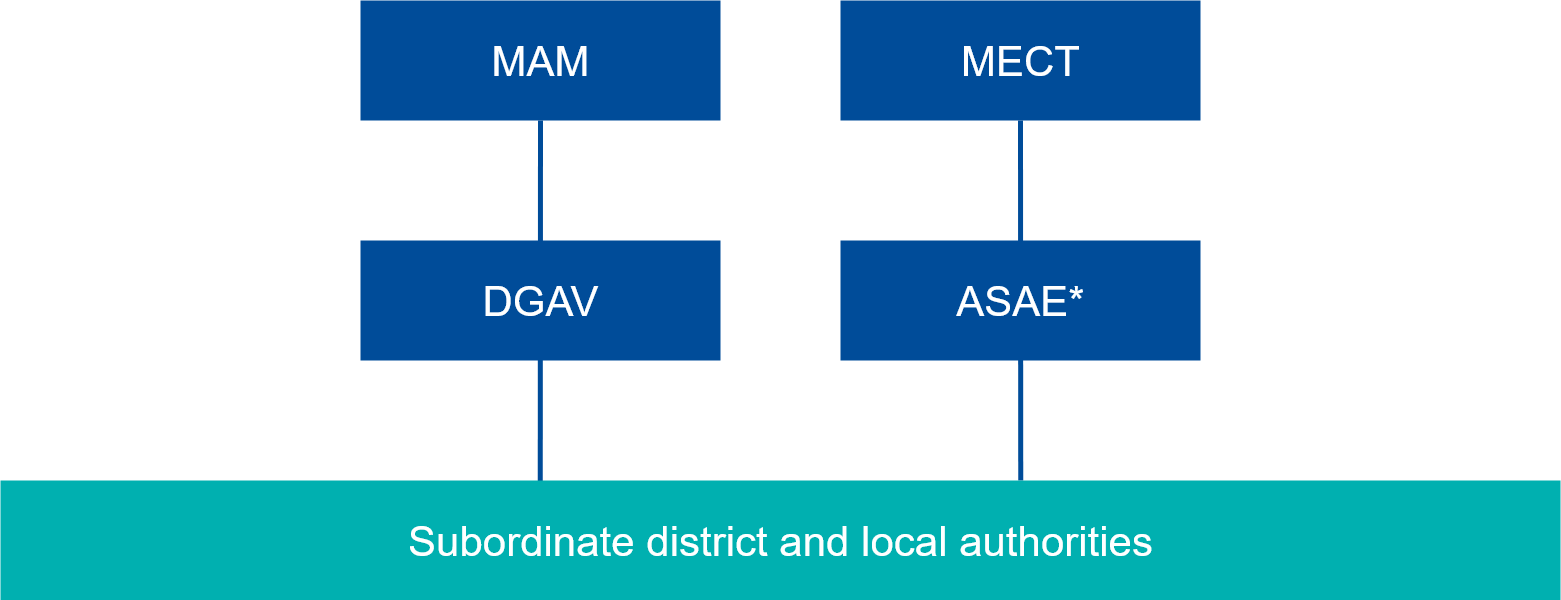Ministry of Agriculture and Maritime Affairs
https://www.portugal.gov.pt/en/gc25/ministries/agriculture-and-maritime-affairs Lisbon
- Risk management
- Codex contact point
- Agricultural policy, food safety
- RASFF contact point
Within the Ministry of Agriculture and Maritime Affairs (MAM), the Directorate-General for Food and Veterinary (DGAV) is in charge of coordinating legislation, preparing bills and the multi-annual national control plan. It is also responsible for the implementation of food safety controls for food of animal origin. Most activities in the area of food safety and food inspections are supervised by the MAM.
The MAM's work extends beyond the field of food safety to include, for instance, plant health, animal health, animal welfare and biocides. The National Institute for Agrarian and Veterinarian Research (INIAV) is subordinate to the MAM. The INIAV contains several National Reference Laboratories in its structure, pursuant to Regulation (EC) 882/2004.

